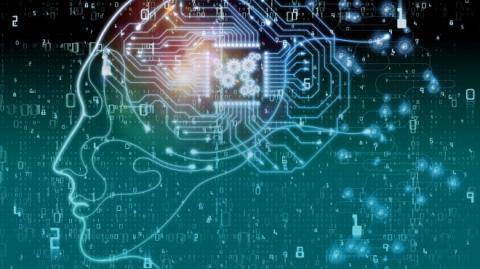Three Big Questions on Artificial Intelligence and Schools

Artificial Intelligence is changing banking, health, business, and the military. But so far, it has been slow to go big in K-12 education, said Scott Garrigan, emeriti professor of practice at Lehigh University at a session at the International Society for Technology in Education's annual conference here.
But that is likely to change in the coming years, he said. No sector will be untouched by AI.
"AI will change society. It will produce changes as big as the automobile," Garrigan said. "We have no idea what's going to happen as AI rolls out massively. But there will be massive, massive change. AI is the new electricity. I can't think of any industry AI will not transform." Ultimately, that will include K-12 schools too, he said.
Here were some of the big questions for educators to tackle:
How Will AI Change Curriculum?
Calculus and arithmetic won't be as important, Garrigan predicts. Instead, schools will likely begin emphasizing statistics and probability. And they'll be less of an emphasis on performing hard calculations, because that's something machines can already do.
"Who doesn't have access to a calculator?" he asked. "Spending twelve years to help kids be the equivalent of a two -step calculating algorithm, that's absurd."
He's betting schools will shift away from programming in Java and move toward other computing languages, like Python, that have greater application with AI.
What's more, students will need to grasp AI itself. Not just its technical implications, but the societal ones too.
"Teachers and students need to understand this stuff," Garrigan said. That's because AI will bring about "not just technological but social change," including creating jobs that don't currently exist.